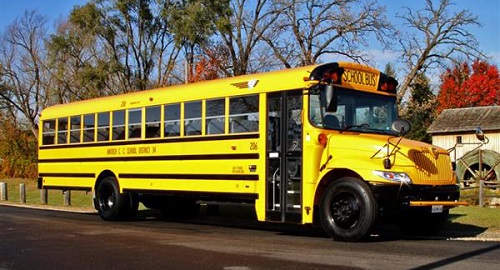|

Controversial Criminal Justice Reform Bill Sent to Governor
The controversial and divisive criminal justice reform bill, HB3653, is now on Pritzker’s desk awaiting his signature. The legislation, promoted by supporters as a reform measure, makes significant changes to the state’s criminal justice system.
The legislation was filed and called for a vote in the early morning hours of the recent lame-duck legislative session. Police departments, prosecutors, and victims’ advocates have been sounding the alarm over the dangers that the bill would pose to public safety. If signed into law, HB3653 would create new unfunded mandates on police departments, potentially requiring departments to either cut back or for property taxes to increase to cover the costs. The legislation would also make it harder for police to make arrests and to keep violent offenders behind bars while they await trial.
Some of the major components of the bill include:
- Eliminates cash bail completely by Jan. 1, 2023.
- Creates several new and potentially costly unfunded mandates, including new training requirements and body camera mandates.
- Bases preference for police department grants on compliance with body camera mandates.
- Requires suspects to be granted three phone calls within three hours of their arrest.
- Creates a task force to study the feasibility of removing qualified immunity from police officers.
Senator Bailey recently held a Zoom conference call with law enforcement officials and prosecutors from the 55th Senate District to discuss concerns with the legislation and to answer questions.
Major concerns voiced by law enforcement during the meeting includes:
- Efforts being undertaken to eliminate cash bail;
- Financial burdens being placed on local police forces resulting from unfunded mandates;
- Concerns about enforcement of the law, including Class B or C misdemeanors;
- Not being allowed the opportunity to have input in crafting the legislation;
- Ongoing concerns and potential threat to qualified immunity;
- Restrictions being placed on law enforcement officers, including not allowing officers to review body camera footage before writing a report.
In light of these concerns, Senator Bailey joined his colleagues in the Senate Republican Caucus in submitting a letter to the Governor formally requesting that he veto the legislation.
If you want Governor Pritzker to veto this legislation, you can contact the Governor’s office at: Springfield office- 217-782-6830 or 217-782-6831 or Chicago office- 312-814-2121 or 312-814-2122.
You can also sign a petition calling on the Governor to veto HB3653 at: http://www.sendarrenbailey.com/

Sen. Darren Bailey Selected as Lead Republican on Senate Ag Committee
Lifelong farmer State Sen.Darren Bailey (R-Louisville) will be leading ag-related legislative efforts for Republicans in the Illinois Senate as the ranking GOP-member of the chamber’s Agriculture Committee.
“Our family farms and agri-businesses are the backbone of our state’s economy,” said Sen. Bailey. “As someone who has spent his entire life in the industry, I understand the concerns and issues faced by the industry. I’m honored to serve in this role and to have a continued opportunity to provide oversight on legislation facing agriculture professionals.”
Bailey will also have the opportunity to bring his experience as a former school board member as he will be serving on the Education Committee. In addition, he has also been added to the rosters of the Energy & Public Utilities, Health, Higher Education, and Labor Committees.
“I look forward to getting back to work on legislation and serving as a watchdog for the people of Illinois,” said Bailey.

Controversial teaching rule pending before JCAR
Republican lawmakers are raising concerns about a new rule pending before JCAR that would create additional, unnecessary demands on teachers, would step away from knowledge-based learning, and would promote progressive political viewpoints in the classroom.
In December 2020, the Illinois State Board of Education approved a new rule for Illinois teachers called the “Culturally Responsive Teaching and Leading Standards” (CRTL). The new rule creates a burdensome, confusing, and vague set of progressive requirements and standards that teachers will use to guide their teaching narrative.
Main concerns contained within the new proposal include:
- The standards throughout the rule are extremely vague, overlooking substantive knowledge and performance indicators.
- While being perpetuated as standards to promote inclusivity, the new rule could actually threaten alternative viewpoints and silence the voices of many students and educators.
- This new rule requires teachers to take on a new role: activist nurturer. Unfortunately, there is no clear definition as to what that role will entail.
- This rule clearly seems designed to shift classrooms away from knowledge-based learning and move them toward promoting left-leaning political viewpoints.
- The standards are redundant in many ways, repealing and replacing existing rules that already require that teachers create an inclusive environment.
While Republican lawmakers support a positive learning environment where students can develop the ability to understand and interpret events and issues for themselves, and are respected for their differences, these standards are ambiguous and create demands on teachers that opponents say are not conducive to a healthy learning environment.
Senator Bailey is encouraging constituents to voice their thoughts on the proposal by reaching out to members of JCAR by clicking here.
To read the full text of the CRTL standards, click here. Members of JCAR are expected to take up the new rule at their next scheduled meeting on Feb. 16.

Tax filing season approaches
The Illinois Department of Revenue (IDOR) will begin accepting 2020 state individual income tax returns on Feb. 12, the same day that the federal Internal Revenue Service (IRS) will begin accepting federal individual income tax returns.
IDOR reminds taxpayers that filing income tax returns electronically and utilizing direct deposit is the fastest way to receive refunds. According to IDOR, taxpayers should receive their refunds in four to six weeks if they are filed correctly.
Taxpayers are also being encouraged to create a My Tax Illinois account, which will allow taxpayers to respond to any department inquiries electronically, make payments and check the status of their refunds.
The 2020 tax filing deadline is April 15.
|